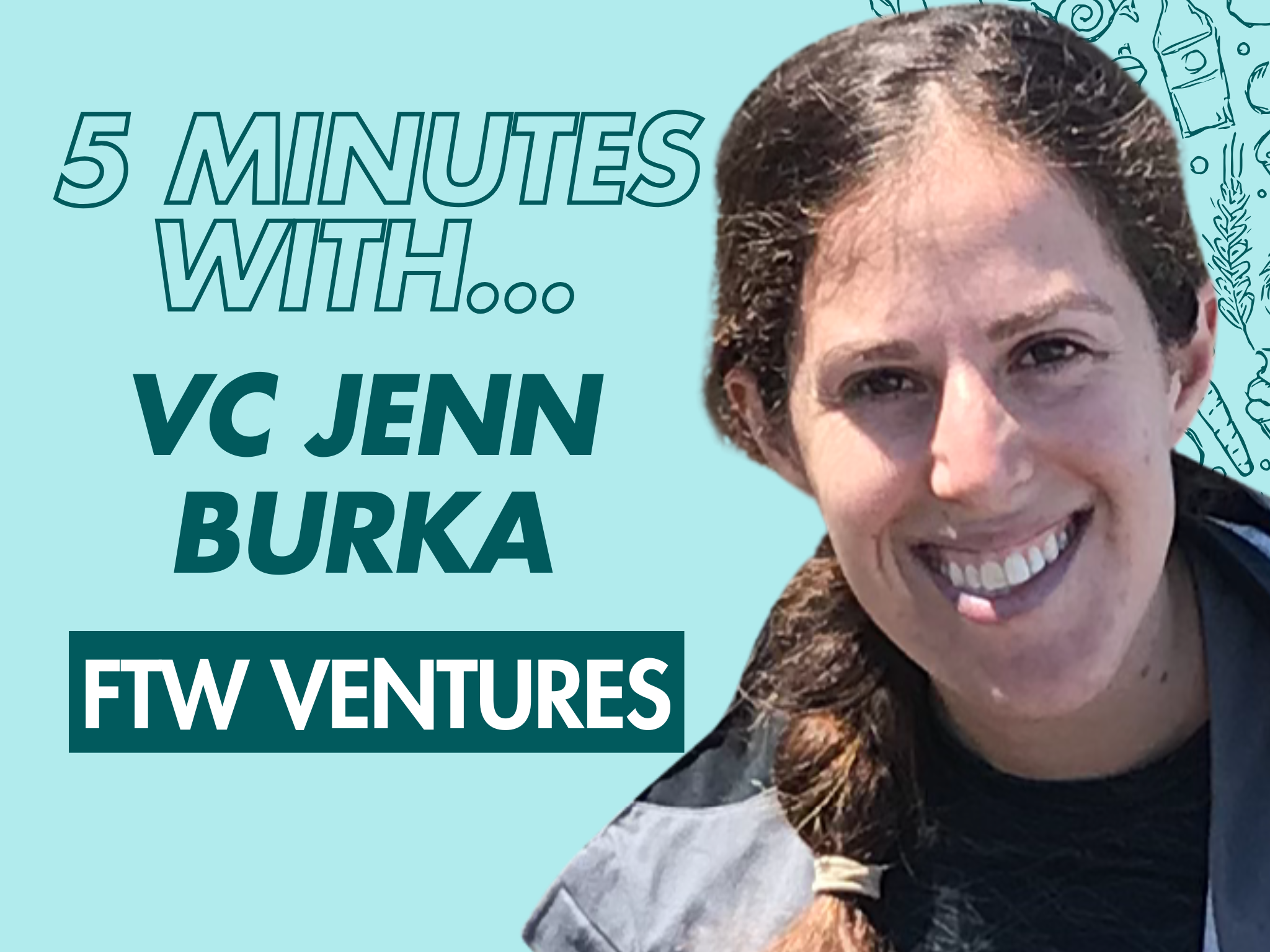3 Mins Read
In our interview series, we quiz future food investors about the solutions that excite them the most, their favourite climate-forward restaurant, and what they look for in successful founders.
Jenn Burka is a Principal at FTW Ventures.
What future food technologies most excite you?
Technologies that look at the future of food with a systems approach are the most interesting to me – things that aren’t a single product solution, but that can actually make an impact on the way we grow, transport, and get nourished by our food.
What are three future food verticals you are actively looking at for 2025?
- Food as medicine
- Cold-chain technologies
- Farmer fintech
What do you consider the food tech sector’s greatest achievement in the past five years?
The advances we’ve seen in our understanding of the microbiome have brought the idea of a healthy gut into the mainstream and released some exciting first-generation products that will pave the way forward for more focus on how to utilise food to make us healthier.
If you could wave a magic wand, how would you fix plant-based meat?
In order to make these alternatives competitive with meat, there would need to be significant changes in how meat is subsidised. Otherwise, at current costs, it’s hard to see these products being adopted by a significant enough part of the population to have a true climate impact. It also has to taste good.
What’s the top trait you look for in a founder?
Product-founder fit is incredibly important, especially in food tech, which is such a complex system that really requires an understanding of how the parts fit together.
The One That Got Away: What is the deal you wish you had gotten into, but didn’t?
I really love what the team at Brightseed is doing to advance the food as medicine movement. I also love Zya‘s approach to fighting high sugar consumption.
What do you consider your most successful future food investment so far?
Our fund is only two years in, so it’s a bit too early to say, but I’m really excited about our portfolio company VoltAir, which is looking at the impact that food has on other global emissions in the cold chain by creating a fully integrated software and hardware solution to electrify the refrigeration unit in diesel trucks.
What has been your most disappointing investment so far?
I’ve invested a ton of my time looking at microbiome startups, and I’m disappointed that I haven’t yet found the company that we’ve gotten over the finish line. Still waiting for the perfect blend of founding team, true technological innovation, and intelligent go-to-market strategy (we’re still rather hesitant about pure supplement plays).
What do people misunderstand/get wrong most about VC?
VCs are often startups too! Particularly emerging funds that don’t have cushy management fees that allow them to earn a lot of money and pay for a lot of resources.
We have to really love working with founders and believe in their outsized potential in order to keep doing what we do.
What is the most ‘future food’ thing you have eaten this month?
I found a craft beer that was brewed with Oishi berries…a bit gimmicky but I had to try it (and I do love a sour beer)!
Where is your favourite climate-forward restaurant/dish/place to eat anywhere in the world?
Probably my favourite climate-forward dish would be the one I make out of our backyard garden using peak summer produce. With tomatoes, peppers, basil, garlic, and eggs from our neighbour’s chickens (plus homemade sourdough with my five-year-old starter), it’s easy to sustain myself for a few months (plus more with what I freeze/can/preserve).
What’s your ‘why’? What motivates you to do what you do?
I’ve worked in the food system most of my career, and there are so many legacy players that haven’t changed in 100+ years. I believe that startups can be the catalyst for change in these industries, and change is what’s needed to make our system better for you and better for the planet.



